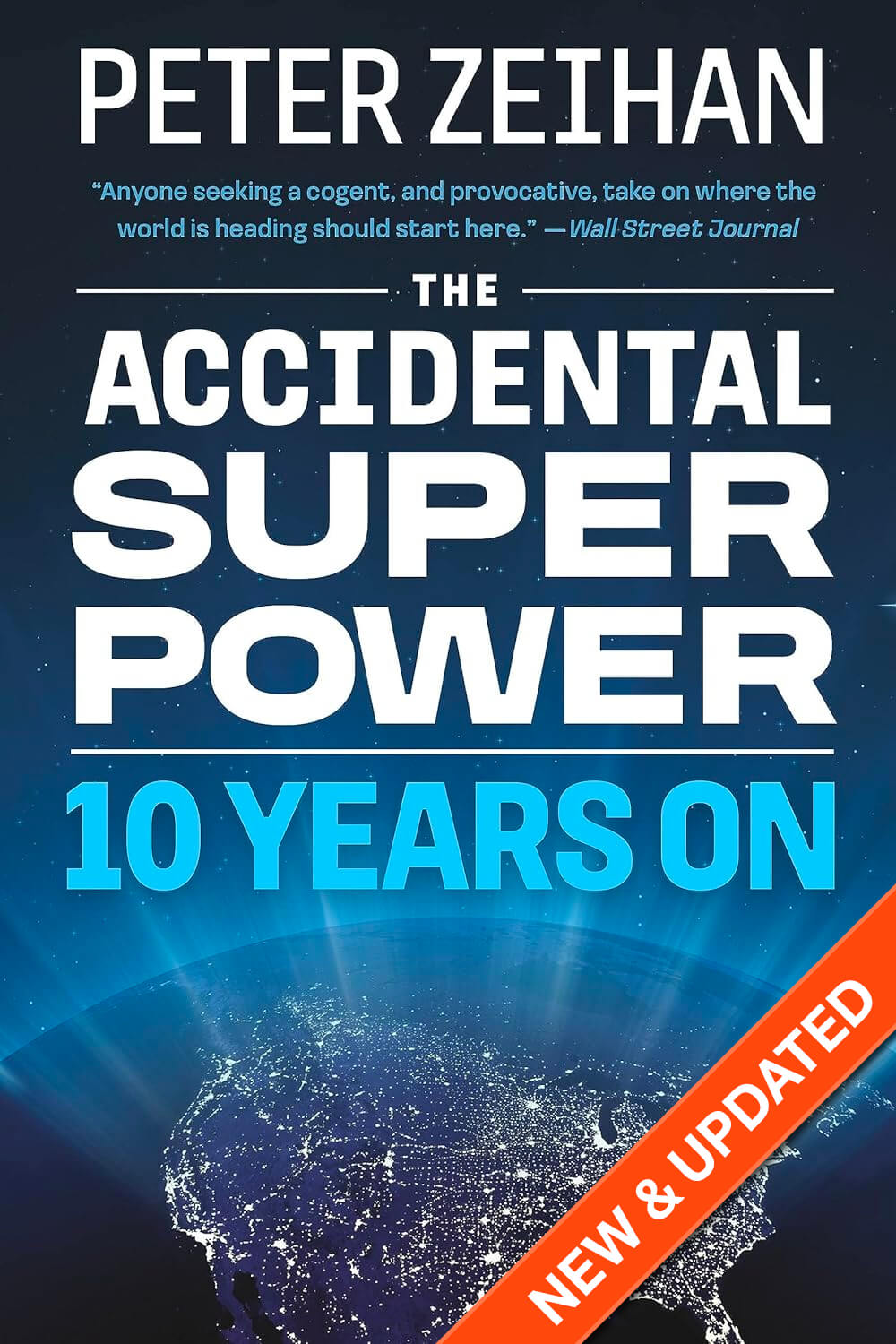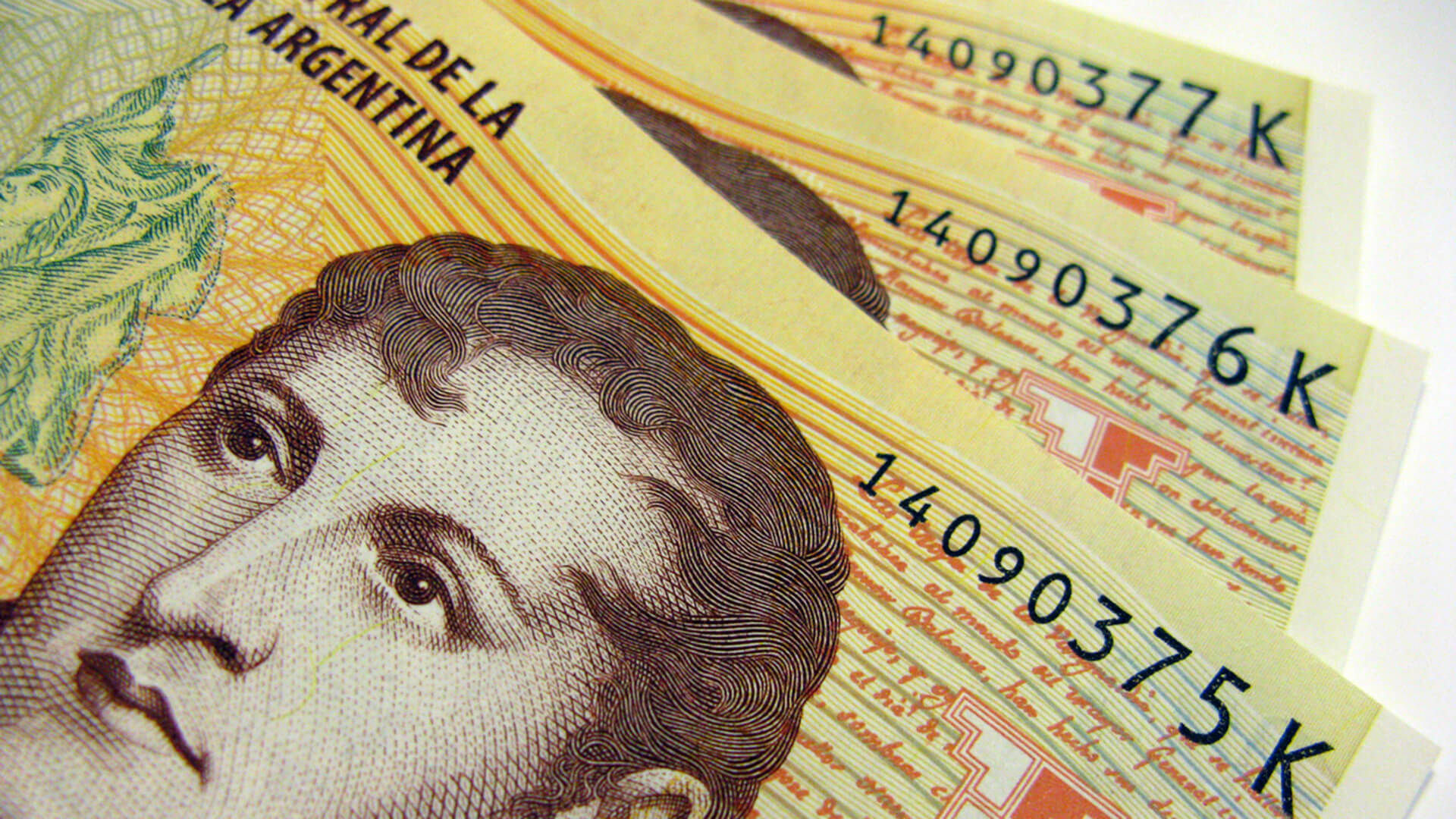
The Accidental Superpower: Ten Years On
With a new “10 years later” epilogue for every chapter, comes an eye-opening assessment of American power and deglobalization in the bestselling tradition of The World is Flat and The Next 100 Years.
The new Argentine president, Javier Milei, is getting right down to business. It’s only his first week on the job, and he’s already cut government ministries in half, dismissed public officials, halted public works, and devalued the currency by 50%.
On paper, the goal of all this is to add some stability to the Argentine economy and eventually dollarize it. This won’t be an easy process, but it’s an opportunity to overcome the economic struggles linked to Peronism and begin to recognize Argentina’s full potential.
If Milei proves to be successful, Argentina could become the model for countries attaching themselves to more stable currencies or economies in an effort to ditch their soft currencies.
Here at Zeihan On Geopolitics we select a single charity to sponsor. We have two criteria:
First, we look across the world and use our skill sets to identify where the needs are most acute. Second, we look for an institution with preexisting networks for both materials gathering and aid distribution. That way we know every cent of our donation is not simply going directly to where help is needed most, but our donations serve as a force multiplier for a system already in existence. Then we give what we can.
Today, our chosen charity is a group called Medshare, which provides emergency medical services to communities in need, with a very heavy emphasis on locations facing acute crises. Medshare operates right in the thick of it. Until future notice, every cent we earn from every book we sell in every format through every retailer is going to Medshare’s Ukraine fund.
And then there’s you.
Our newsletters and videologues are not only free, they will always be free. We also will never share your contact information with anyone. All we ask is that if you find one of our releases in any way useful, that you make a donation to Medshare. Over one third of Ukraine’s pre-war population has either been forced from their homes, kidnapped and shipped to Russia, or is trying to survive in occupied lands. This is our way to help who we can. Please, join us.
TranscripT
Hey everybody. Good morning from chilly colorado. The news today is that the Argentine government and its new president, Javier Milei, it has launched with a gusto in their first wave of reforms in the first week on the job. They’re cutting the number of government ministries by half. They’re firing a lot of public service officials. They’ve stopped all public works projects until the budget stabilizes, and they have already devalued the currency by 50%.
Nominally, the goal here is to get to a more stable situation where the country has a little spare cash. You can buy up dollars on the international market and then buy out with those dollars every single peso in circulation so that the country can dollarized. And in theory being that future governments then will be forced to actually act within their means, cause a massive budget deficit.
And the previous government has been printing currency like mad and leading to hyperinflation. And I think it’s something like 40% of the population of Argentina is in poverty. Now, two reasons of this matters. Number one, Argentina is a country that I expected to be doing fairly well in the future, not because of its government, because of its geography and demography.
It has a larger proportion of young people than almost any country, not just in its pure class, but in the entire advanced, developing, middle, developing. And of course, the advanced world. So a lot of the problems that everyone was dealing with with, say, pensions as mass retirements hit the workforce, it just doesn’t apply in Argentina at all and it won’t for decades.
Second, Argentina has got a pretty sweet spot on the planet. It’s got great arable land, great navigable rivers, pretty good infrastructure. Its educational system is top notch. They are arguably the most skilled country for their pure class as well. The problem has always been Peronism and the government. Now, if Malé can fix a few things, then great. But I think the other reason to look at this is in the world we’re moving to as it globalized is, a lot of countries are going to be watching the Argentinean experience very closely, not because they have a similar political culture or geography or economy, but because as trade breaks down, the ability of countries to maintain soft
currencies at all is going to be somewhat limited. And the past for Argentina with hyperinflation, government intervention, massive intrusion of the economy, authoritarian systems and printing currency, a lot more of that is going to happen. And the more logical path for countries who decide that they don’t want to be destitute in economic basket cases will be to attach themselves to a more potent country with a more stable currency regime and economic structure.
And that means doing something like dollarized Nation. Although it doesn’t have to be the dollar, it could be the yen, it could be the rupee, it could be the pound. You know, there are other options out there. But this sort of cold seen into currency blocks and trading blocks and security blocks is the most likely outcome of all of this.
So I’ll be watching Argentina very, very closely to see what they get right, see what they get wrong, see if this is a beautiful experiment or a beautiful disaster. It’s just way too early to know right now. What we do know for sure is that the Argentines system before Millay was broken. We will now find out if it’s broken beyond repair.








